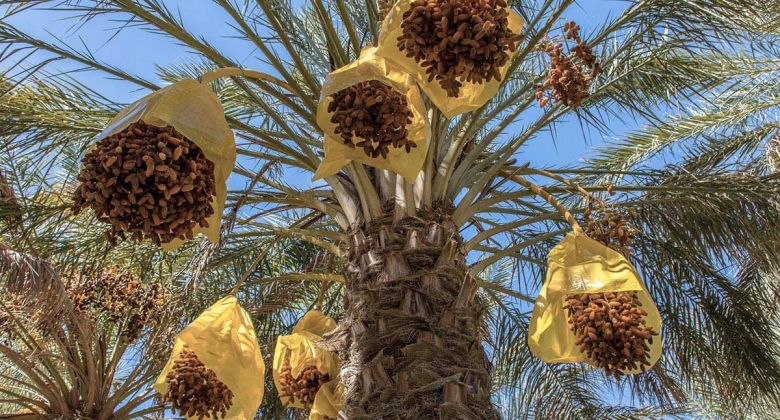

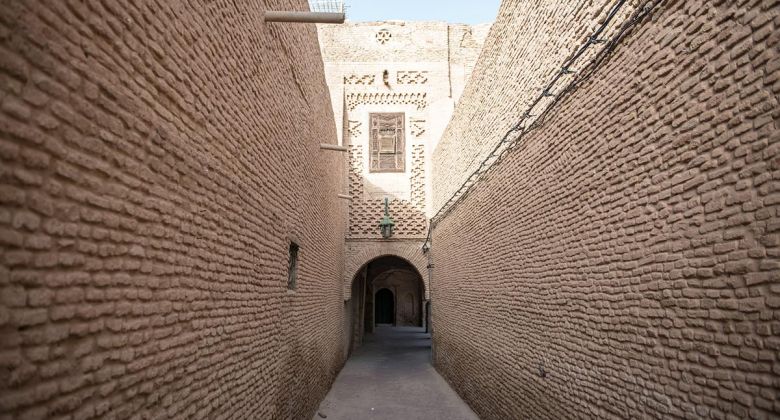
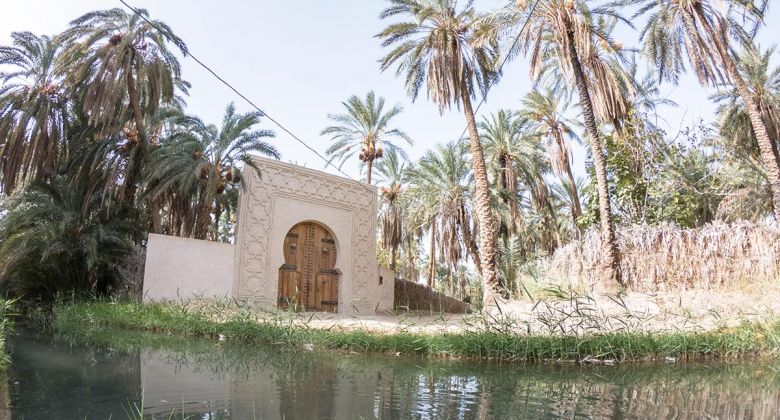
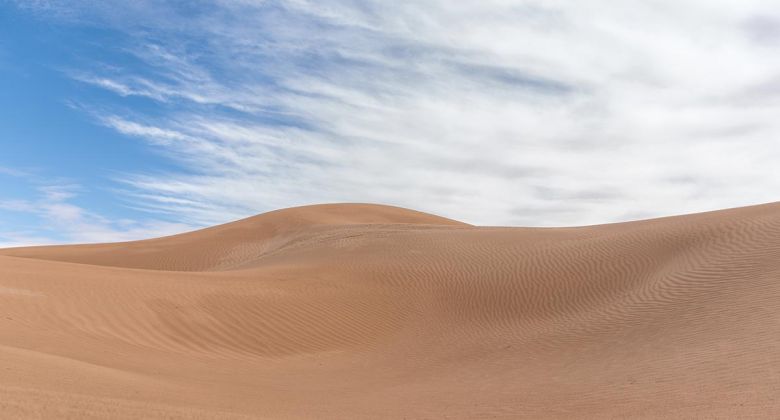
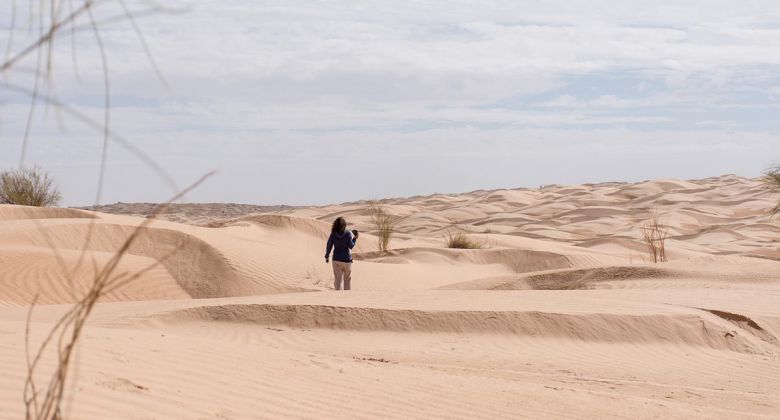
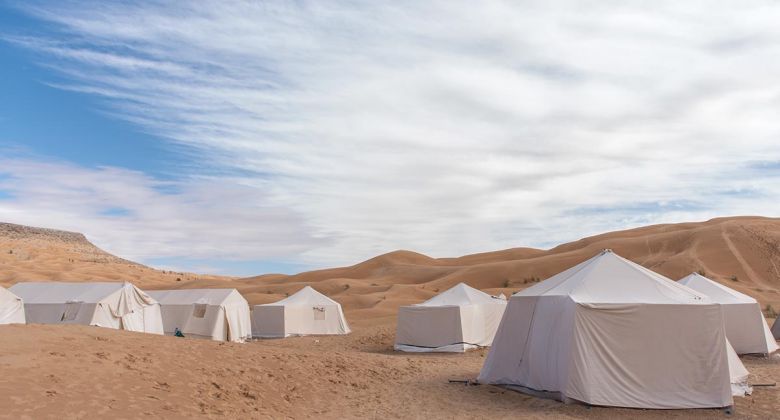
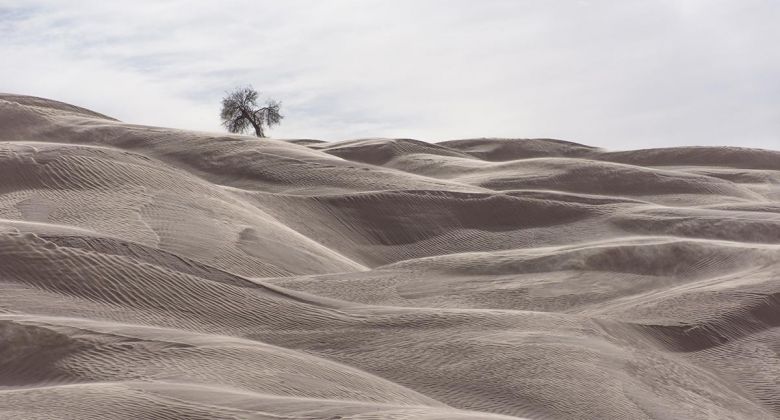
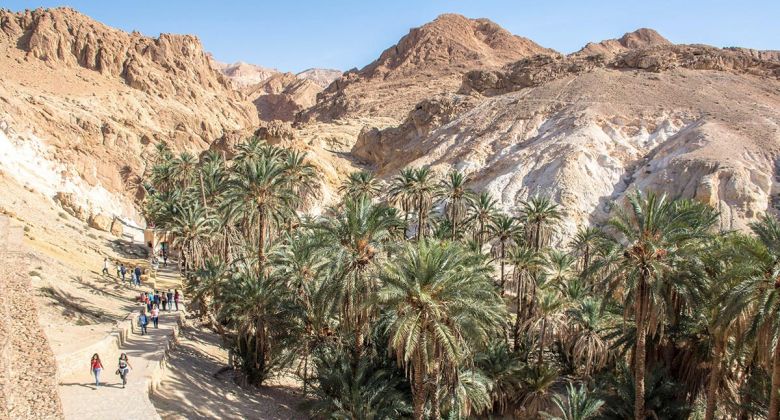
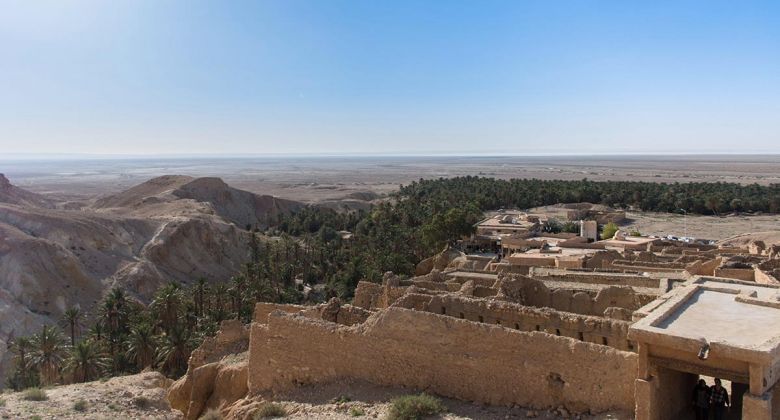
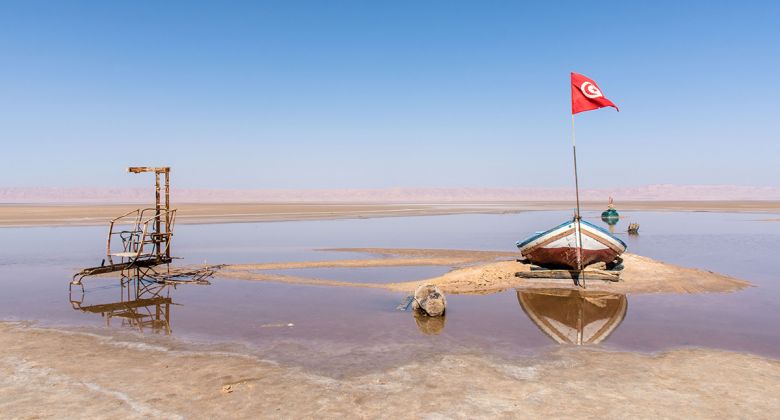
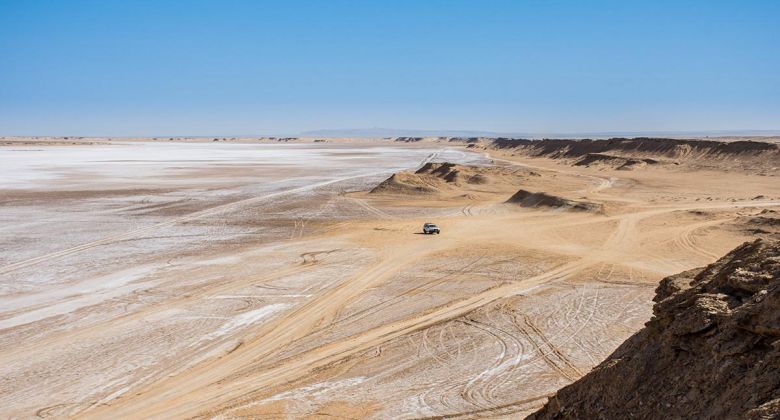
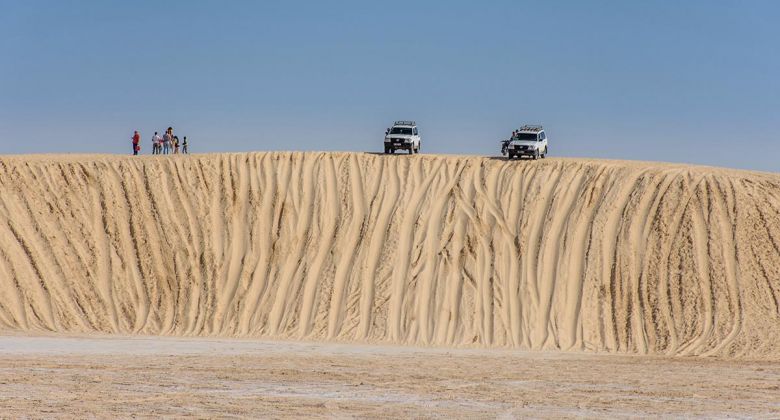
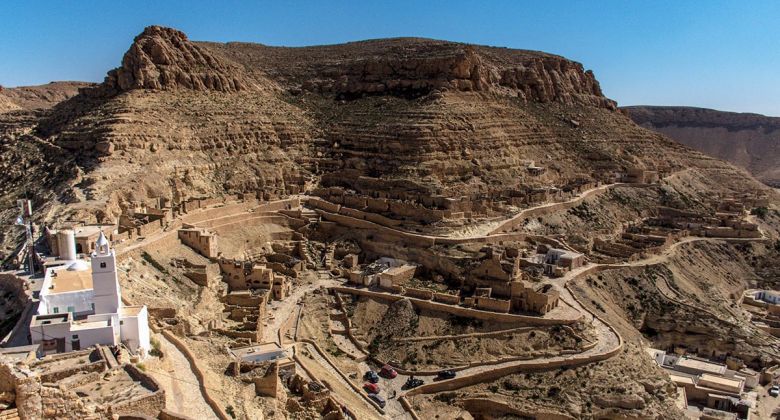
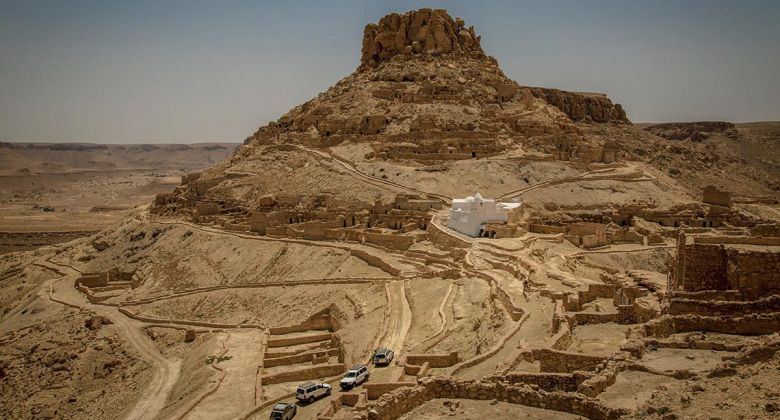
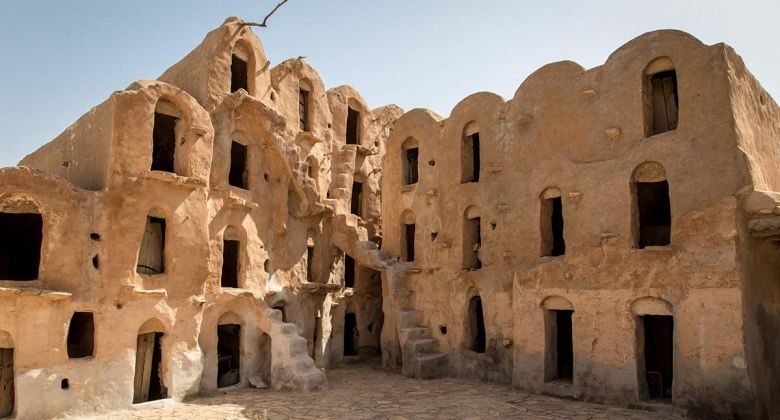
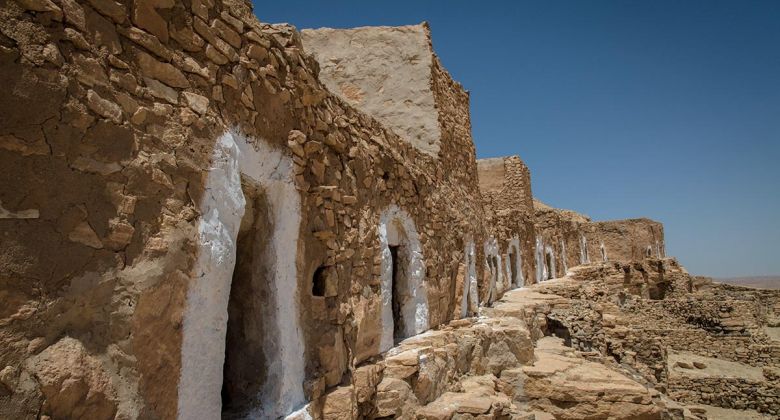

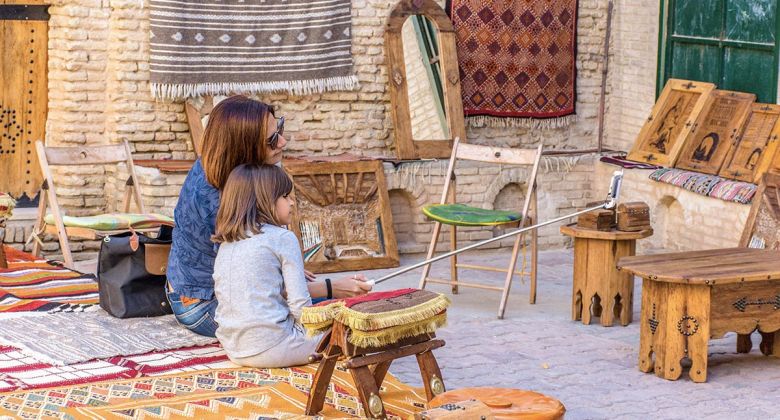
From Tozeur to Tataouine via the vast sandy desert, the Tunisian South is a true world of its own whose diversity will amaze you. Explore mountains, the oases or the Berber villages, go hiking, bivouac under the stars… and even play golf.
Walk among the immensity of the desert dunes, bivouac under a starry sky, taste the nomads’ traditional bread, stop for a rest under a stand of palm trees in the middle of nowhere...the Sahara is a magical experience. What a reward to suddenly discover a giant dune, a hot water lake or a field of desert roses!
Whether you go on a long trek with camels or stay in a comfortable camp, the poetry of the sunrise over the dunes will leave you with an indelible memory.
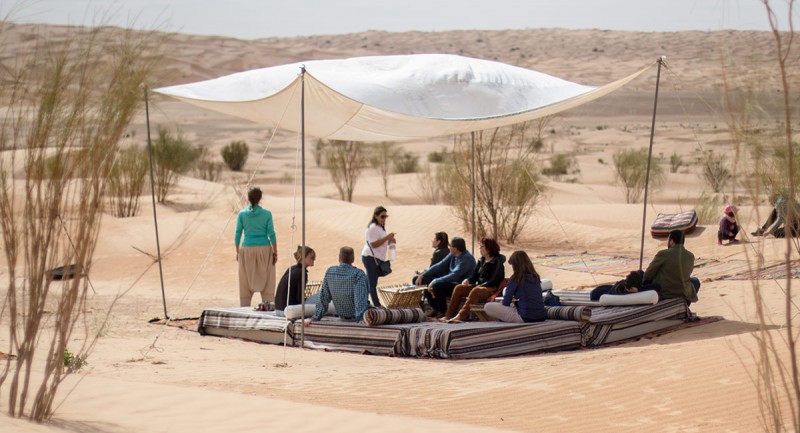
All around, you will discover incredible landscapes: chotts, sandy villages, mountain oases...
Holidays in Tozeur:
Choose your accommodation and book without intermediaries
Deep into the majestic Dahar mountains, you will spot Berber villages perched in the heights and the amazing Ksour or fortified granaries.
You will sleep in troglodyte houses and listen to the inhabitants telling you the legends of the region...
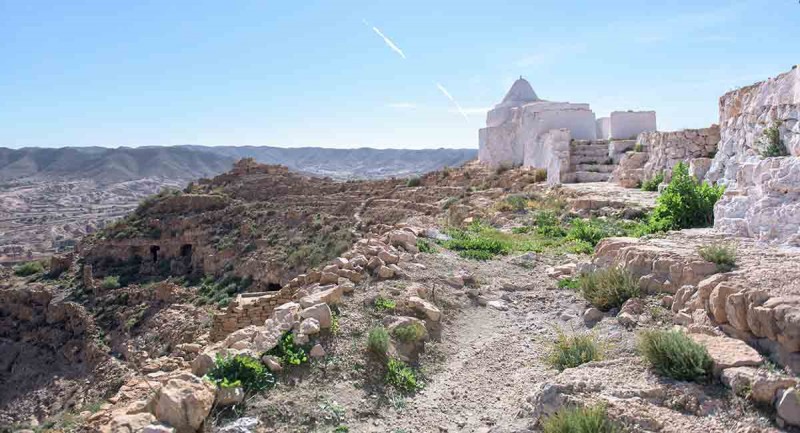
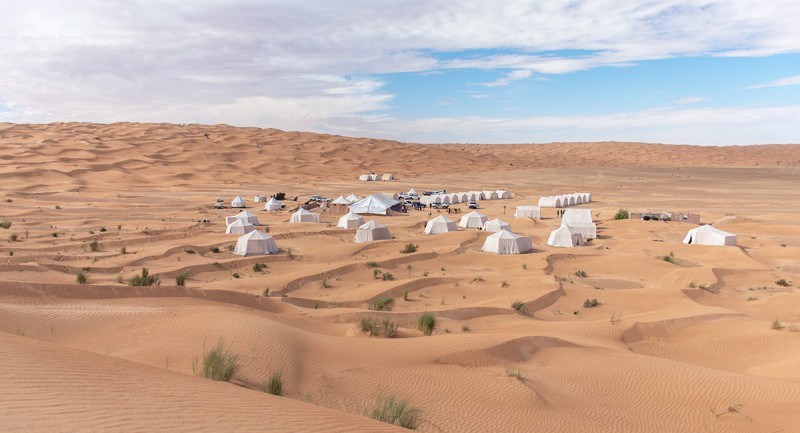
An adventure course with zipline in a palm grove: Sahara Lounge in Tozeur.
If you are visiting the Dahar region (South-East), download the free application Destination Dahar (on App Store and Google Play).
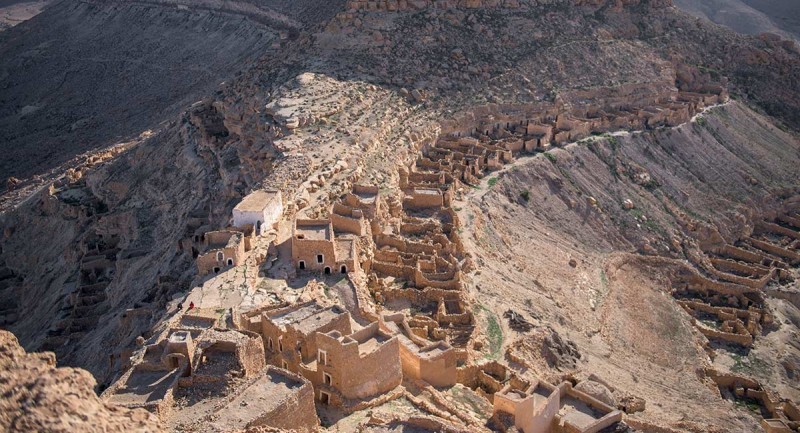
Take part in the Z'Ammour Trekking around the Berber village of Zammour in the Dahar: trekking but also mountain bike race and various animations.
Attend the manufacturing of traditional bricks typical of the architecture of Tozeur and Nefta.
Play golf in an oasis! Tozeur Oasis Golf faces the giant palm grove in a majestic setting. Read more about golfing in Tunisia.
> CHOOSE YOUR ACCOMMODATION IN THE TUNISIAN SOUTH.
The Tunisian Sahara is not limited solely to the sand desert; it’s a fairytale universe of infinite variety. Desert of sand, desert of stone, oases… the list of unusual spots is long.
Two large medinas can be found in the oasis region, Tozeur and Nefta, veritable labyrinths of narrow streets.
These oasis towns are large medinas rising out of the desert, backed by giant palm groves.
Their narrow streets run between high brick walls, making strange labyrinths protected from the glare of the summer sun. Lift your eyes to appreciate the extraordinary decorative elements of chevrons and lozenges, simply formed by bricks arranged in relief.
You can visit the museum Dar Cheraïet (ancient objects collection), the Eden Palm park at the heart of the palm grove, or the Sahara Lounge “accro-palm” park.
Date picking in the oases is a true spectacle!
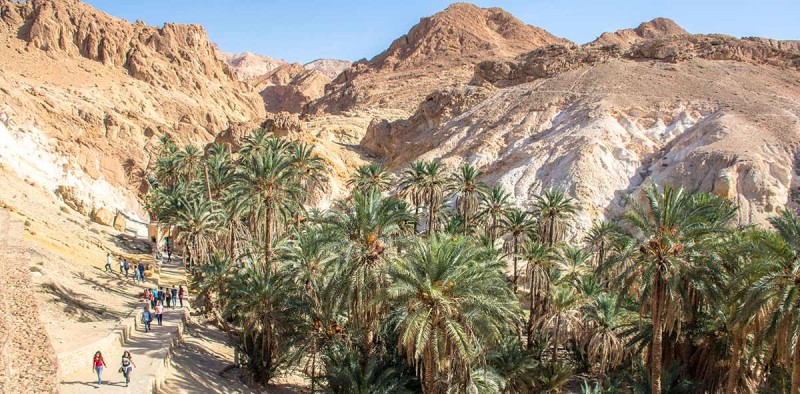
Another one not to miss are the mountain oases in the South-West: waterfalls and palm groves springing miraculously from a landscape of sand-coloured mountains.
The foothills of the Saharan Atlas, in the extreme west, form unique landscapes.
In this mineral universe oases appear deep into the mountains: Chebika and its oued (river) tumbling down the mountain, Tamerza and its waterfall, Mides suspended above an imposing canyon.
Choose your accommodation and book without intermediaries
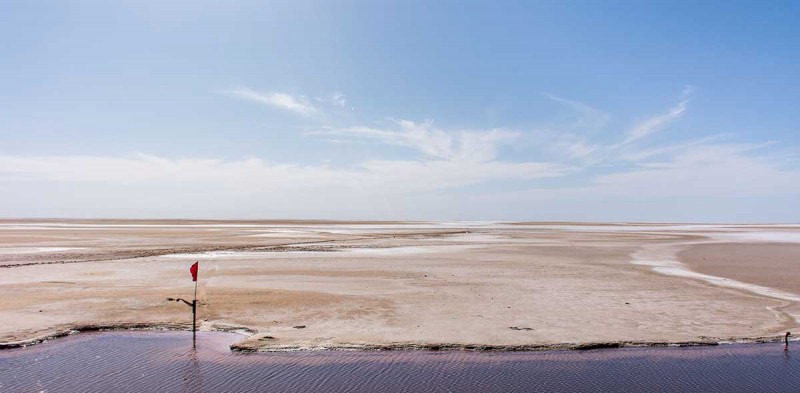
Still to cross is the “desert of salt”, the Chott el-Jerid: a vast white and glittering expanse left by the evaporation of a saltwater lake.
This vast 5000 km2 depression is covered with a crust of glittering salt, the remains of a former saltwater lake – however, certain sections are still flooded in winter and draw gatherings of pink flamingos.

It is one of the main gateways to the sandy desert.
The Sahara Museum presents the way of life of the region's nomads: life in tents, camel breeding, costumes and jewellery...
At the end of December, the International Sahara Festival is an opportunity to admire traditional competitions: camel races, games, hunting with sloughi dogs etc.
Stay in an established camp within an ocean of sand dunes, and experience the pleasure of watching the dawn break above the dunes.
Discover the desert (© ONTT)
These former collective granaries are typical of the Dahar region in the Tunisian South East: nomads would store their harvests here to shelter them from looters.
Some occupy the summit of steep peaks; the largest resemble enormous stone-coloured beehives rising up in the middle of desert plateaus. Each family would have a chamber to store their harvest.
Explore one: climb a ladder to enter one of the superimposed chambers (“ghorfas”) where harvests were once stored.
The citadel of Guermessa is one of the most spectacular spots of the Dahar.
In the Ksour region, Chenini and Douiret are two Berber villages perched upon rocky hilltops. The ancient houses are partly dug into the mountainside.
Giant tombs can be found at the foot of Chenini’s mosque; a legend resembling the one of the Seven Sleepers (or People of the Cave) is told about them. In Douiret, you can visit an ancient subterranean or troglodyte mosque.
One of the most stunning sites in Tunisia: craters dug into the arid hills hide veritable subterranean houses.
Visit other nearby Berber villages such as Tamezret.
Visit an underground oil press in Matmata or the Dahar region.
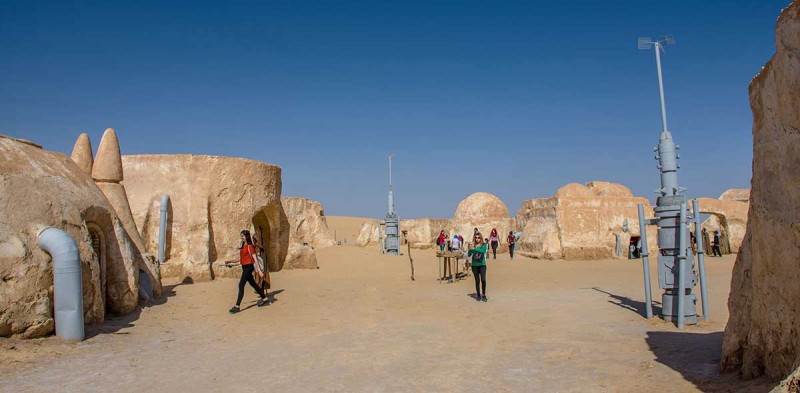
Discover the fictional village of “Mos Espa” in the heart of the sand dunes: it’s the real film set of one of the Star Wars episodes, still intact at a place called Ong Jmel close to Nefta.
One of the subterranean houses of Matmata also makes an appearance in the saga: the Lars family home.
In fact, this region of south-eastern Tunisia inspired the name of the planet Tatooine! More precisely, the city of Tataouine which is surrounded by the unusual and fascinating landscapes of the Dahar Mountains.
Read more: Star Wars in Tunisia, to the birthplace of the Skywalkers.
Not far from the Chott el-Jerid, in Debebcha, strange mounds rise up: dunes of petrified sand.
![]() What else is there to see after a trip to the Tunisian South? The Sahara is a world apart which is worth a long visit for itself alone.
What else is there to see after a trip to the Tunisian South? The Sahara is a world apart which is worth a long visit for itself alone.
Nevertheless, you can prolong your visit by visiting historical sites, for example the archaeological site of Sbeïtla (Roman and Byzantine era) or the medina of Kairouan.
And if you’re in the mood for freshness and luxury after having explored these arid regions, nothing better than a stay by the sea in one of Djerba Island’s or Zarzis’ beautiful hotels to finish your trip.